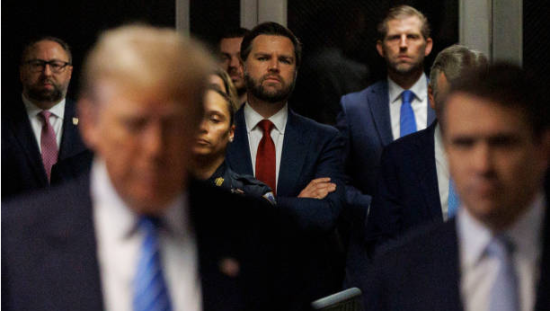Feminism, defined by the Oxford dictionary as “the advocacy of women’s rights on the grounds of political, social, and economic equality to men,” is becoming a mainstream movement. You may have heard a similar definition spoken by Chimamanda Ngozi Adichie over an instrumental interlude in a hugely popular Beyoncé song. Critics and proponents of feminism alike condemn this commercialization of the term, but I see value in making the movement more relatable. Yes, obviously, sources like bell hooks (check her out) are preferable to pop songs, but it’s important to make the ideals of feminism accessible to a younger, less academic demographic. Pop culture icons, when they embrace feminism, send a message to young girls that empowers them to defy everyday misogyny. That being said, there are problematic tendencies that emerge from the movement’s rapid proliferation, which can lead to a dilution of its aims.
The famous, the educated, and the ignorant all grow up in the same society. They may see different sides of it, but they are all subject to the same systems, the same norms. No one’s interpretation of feminism is perfect (check out Roxane Gay’s Bad Feminist essays!). But those who tout themselves as feminists must actively avoid oppressing other disadvantaged groups in the pursuit of their goals. They must emphasize intersectionality, an approach to systems of oppression that takes into consideration the overlap of different identities people use to define themselves. The failure to incorporate intersectionality leads to the emergence of white feminism.
White feminism is, simply put, a movement towards gender equality that disregards the existence of white supremacy. But in a larger context, white feminism is whitewashed, “pretty” feminism that doesn’t give attention to painful realities. It paints the face of feminism with buzzwords, blanket statistics, conventionally attractive aesthetics, and abstract calls for change. To the detriment of the fight for gender equality, white feminism fails to take into account the complexity of privilege and casts sexism as the ultimate and singular form of oppression.
The most recent wave of mainstream feminist outrage to hit the news has been directed at the gender pay gap in Hollywood. The Sony email leak earlier this year gave some insight into the perception of women in the film industry, especially during pay negotiations. This prompted widespread backlash from actresses, actors, directors, producers, and screenwriters alike, riding on the coattails of a new wave of activism.[1] At the Academy Awards, Patricia Arquette slammed sexism in Hollywood during her acceptance speech for Best Supporting Actress, starting strong with vows to fight the norm. “It’s our time to have wage equality once and for all!” was the defining moment, prompting applause and cheers. Then Arquette reeled off into more questionable territory in her post-speech interview backstage. “It’s time for all the women in America, and all the men that love women, and all the gay people, and all the people of color that we’ve all fought for to fight for us now.” Arquette made a lot of assumptions in that call to action, but I’ll draw attention to two: 1) that the fight for LGBTQ rights and equality for people of color is somehow resolved and 2) that people of color, the LGBTQ community, and women are somehow mutually exclusive groups. This “other-ing” of other groups is what characterizes white feminism – it assumes that cisgender white heterosexuality is the norm for women.
The struggles of average Americans vary greatly from those of Hollywood stars. But even in that privileged world, discrimination is evident. For example, at this year’s Academy Awards, no actors or actresses of color were nominated.[2] Read that again: NO PEOPLE OF COLOR were nominated in the acting categories. Out of all the movies up for awards consideration, only five were directed by people of color. Gender inequality in Hollywood, further publicized by Jennifer Lawrence’s open letter and Meryl Streep’s activism, has prompted a federal investigation from the Equal Employment Opportunity Commission. Good! But Viola Davis gave a stirring speech at the Screen Actors Guild Awards, calling attention to not only the lack of roles for people of color, but also the lack of diversity in the available opportunities. And sites such as Every Single Word have scrutinized the screen time and value given to characters of color. Where are the inquiries into Hollywood’s whiteness?
A few months ago, Nicki Minaj reacted to the announcement of nominees for the Video Music Awards with a series of tweets that expressed a discontent with the fact that her widely popular curvy girl anthem “Anaconda” was not nominated, but “when the ‘other’ girls drop a video that breaks records and impacts culture they get that nomination” and how “if your video celebrates women with very slim bodies, you will be nominated for vid [sic] of the year.” Taylor Swift read this as a personal attack on her video for the song “Bad Blood,” which featured a number of mostly white, tall, thin women in pseudo-action movie shots, and scolded Nicki on Twitter, saying that she shouldn’t “pit women against each other.” Nicki explained the point she was making, calling for a more involved discussion of race and body image in pop music, and Taylor realized she had misunderstood. Nicki made her voice heard and Taylor learned more about discrimination in the industry. The two performed together. Happy ending?
Not exactly. The news media characterized this as a “feud” between feminism poster-girl, sweetheart Taylor Swift and angry, irrational, out-of-control, disgruntled artist Nicki Minaj. Article after article documented “the argument” and analyzed how each had “handled the situation.” But most notably, resident white feminist Miley Cyrus contributed her own two cents in a New York Times interview:
“If you do things with an open heart and you come at things with love, you would be heard and would respect your statement. But I don’t respect your statement because of the anger that came with it…If you want to make it about race, there’s a way you could do that. But don’t make it just about yourself.”
There were plenty of other questionable remarks in that portion of the article, but a pretty alarming trend was displayed in this particular statement. Miley Cyrus, a vocal feminist and activist, thought that she could tell a black woman how to talk about race. The purpose of productive advocacy is to address not only the ways in which you face oppression, but also to provide a platform for those without a voice. Cyrus is one of many who trivialize the anger and indignation of the oppressed as misguided purely because it is less palatable to the privileged. Often, those oppressed groups are unable to stand up for themselves. At least in this case, Nicki had no problem.
Feminists who are white are not inherently flawed in their approach to feminism, and they have every right to advocate for themselves. But they must take into account the ways in which systems of oppression work to their benefit. Even the most common topics such as the wage gap, workplace discrimination, and language, for example, go far deeper than just discrimination by gender. The fight for gender equality cannot be limited to the everyday experiences of rich, cis, white, able girls. How does the wage gap affect Hispanic women? How are trans women treated in the office? How do the everyday conversations we have and the people we look up to define the way we see each other?
If your feminism does not leave space for discussion about the empowering and disempowering potential of religion, the murder of trans and nonbinary individuals, the obstacles facing girls seeking an education, the lack of conversation about menstrual and reproductive health, then you are missing a crucial set of dimensions that holistically address gender inequality. It’s impossible to be an expert on every one of these topics, but it is possible to actively educate yourself about as many of them as possible.
Oppression isn’t pretty – you can’t fight it without acknowledging it at its worst. If worrying about these dimensions of inequality is not mandatory for you, then you are privileged. Privilege has layers, and it’s necessary to explore those nuances in order to make feminism intersectional. And feminism without a pronounced emphasis on intersectionality is ignorant, incomplete, and ineffective.
[1] Peterson, Andrea. “Sony’s Hacked E-mails Expose Spats, Director Calling Angelina Jolie a ‘brat'” Washington Post. December 5, 2014. Accessed October 25, 2015. http://www.washingtonpost.com/business/economy/sonys-hacked-e-mails-expose-spats-director-calling-angelina-jolie-a-brat/2014/12/10/a799e8a0-809c-11e4-8882-03cf08410beb_story.html.
[2] Kang, Cecilia. “Oscars 2015: No Nominations for a Single Actor of Color or Female Director.” Washington Post. January 15, 2015. Accessed October 20, 2015. http://www.washingtonpost.com/news/business/wp/2015/01/15/oscars-2015-no-nominations-for-a-single-actor-or-director-of-color/.



